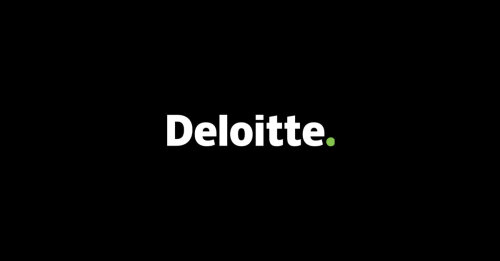Best Telecommunications and Broadcast Lawyers in Oslo
Share your needs with us, get contacted by law firms.
Free. Takes 2 min.
List of the best lawyers in Oslo, Norway
About Telecommunications and Broadcast Law in Oslo, Norway
Telecommunications and Broadcast Law in Oslo, Norway encompasses a wide array of regulations and guidelines governing electronic communications, media services, and broadcasting industries. It ensures fair competition, consumer protection, and the efficient use of the available spectrum. The law aligns with the broader EU framework but also integrates unique aspects specific to Norway's digital economy and cultural context. The Norwegian Communications Authority (Nkom) plays a central role in regulating and supervising these sectors.
Why You May Need a Lawyer
There are several scenarios where you might need legal assistance in the field of Telecommunications and Broadcast in Oslo:
- Licensing and Regulatory Compliance: Navigating the complex landscape of obtaining necessary licenses and maintaining compliance with local regulations can be challenging without legal guidance.
- Dispute Resolution: Issues may arise between service providers, or between a provider and a user, that require legal intervention to resolve.
- Contracts and Agreements: Drafting, reviewing, or negotiating contracts related to network sharing, content distribution, or partnerships often requires legal expertise to ensure your interests are protected.
- Intellectual Property: Protecting and leveraging intellectual property, such as software, patents, and broadcast content, can necessitate legal advice.
- Consumer Protection: Ensuring compliance with consumer protection laws and managing any claims or complaints from consumers often require legal knowledge.
Local Laws Overview
The key regulations and laws governing Telecommunications and Broadcast in Oslo, Norway include:
- Electronic Communications Act: This act governs the provision and use of electronic communications and services, overseeing issues like licensing, competition, and user rights.
- Norwegian Media Authority (Medietilsynet): This body ensures that media and broadcasting services adhere to national standards and regulations.
- Competition Act: Focuses on promoting competition and preventing anti-competitive practices within the telecommunications and broadcasting market.
- Intellectual Property Laws: These include various acts and regulations protecting copyrights, trademarks, and patents in the media and telecommunications sectors.
- Consumer Protection Act: Ensures that the rights of consumers of telecommunication and broadcast services are protected.
Frequently Asked Questions
What is the first step to obtaining a broadcasting license in Oslo?
The first step is to apply to the Norwegian Media Authority for a broadcasting license, ensuring that you meet all the necessary criteria and compliance requirements.
How can I resolve a dispute with a telecom provider?
Many disputes can be resolved through mediation or arbitration. If necessary, legal action can be taken in compliance with the procedures outlined in the Electronic Communications Act.
Are there any restrictions on foreign ownership of media companies in Norway?
Yes, there are restrictions on foreign ownership in the media sector to ensure national control over critical communication infrastructure and content.
What are the penalties for non-compliance with telecom regulations?
Penalties can range from fines to the revocation of licenses, depending on the severity of the non-compliance.
How are consumer rights protected in telecommunications?
Consumer rights are protected under the Consumer Protection Act, which ensures fair treatment, transparent contract terms, and the right to lodge complaints.
What role does the Norwegian Communications Authority play?
Nkom supervises the sector, ensuring compliance with laws and regulations, managing spectrum allocation, and protecting consumer rights.
Can I broadcast online content without a license?
Some online content may require a license, particularly if it includes live streaming or resembles traditional broadcast services.
What should be included in a telecommunications service contract?
A contract should include the scope of services, pricing, duration, termination clauses, and compliance with regulatory requirements.
Is there a way to appeal a decision made by the Norwegian Media Authority?
Yes, decisions can be appealed to higher authorities or through the legal system, depending on the nature of the issue.
How do intellectual property laws affect broadcasting content?
Intellectual property laws ensure that the creators and right holders of content are protected, and any use of such content must comply with these laws.
Additional Resources
For further assistance and information, the following resources can be incredibly helpful:
- Norwegian Communications Authority (Nkom): The primary regulator for telecommunications and broadcasting.
- Norwegian Media Authority (Medietilsynet): Oversees media and broadcasting regulations and compliance.
- Competition Authority: Ensures fair competition practices in the market.
- Consumer Council of Norway: Provides guidelines and assistance on consumer rights and complaints.
- Legal Firms Specializing in Telecommunications and Broadcast: Many law firms in Oslo specialize in telecommunications and broadcast law and can provide detailed and case-specific advice.
Next Steps
If you need legal assistance in the field of Telecommunications and Broadcast in Oslo, consider the following steps:
- Identify Your Needs: Clearly outline your legal needs, whether it’s licensing, compliance, dispute resolution, etc.
- Consult a Professional: Contact a lawyer or a law firm specializing in telecommunications and broadcast law.
- Gather Documentation: Collect all relevant documents and information that will support your case or application.
- Understand Fees: Inquire about the legal fees and establish a clear payment structure with your legal advisor.
- Follow Legal Advice: Adhere to the guidance provided by your lawyer to effectively navigate the legal landscape.
By following these steps, you can ensure you receive the needed legal assistance and protect your interests in the telecommunications and broadcast sectors.
Lawzana helps you find the best lawyers and law firms in Oslo through a curated and pre-screened list of qualified legal professionals. Our platform offers rankings and detailed profiles of attorneys and law firms, allowing you to compare based on practice areas, including Telecommunications and Broadcast, experience, and client feedback.
Each profile includes a description of the firm's areas of practice, client reviews, team members and partners, year of establishment, spoken languages, office locations, contact information, social media presence, and any published articles or resources. Most firms on our platform speak English and are experienced in both local and international legal matters.
Get a quote from top-rated law firms in Oslo, Norway — quickly, securely, and without unnecessary hassle.
Disclaimer:
The information provided on this page is for general informational purposes only and does not constitute legal advice. While we strive to ensure the accuracy and relevance of the content, legal information may change over time, and interpretations of the law can vary. You should always consult with a qualified legal professional for advice specific to your situation.
We disclaim all liability for actions taken or not taken based on the content of this page. If you believe any information is incorrect or outdated, please contact us, and we will review and update it where appropriate.









